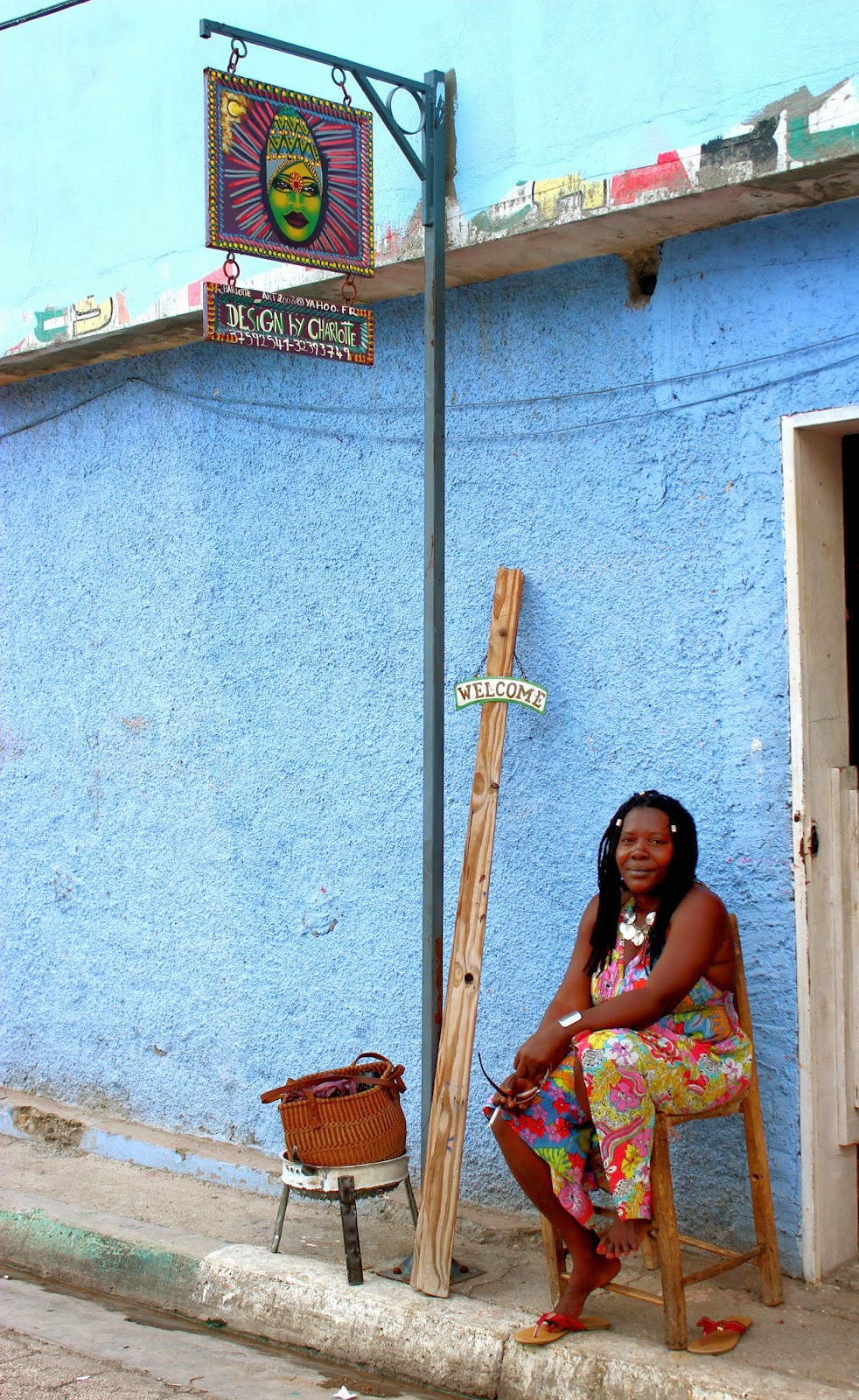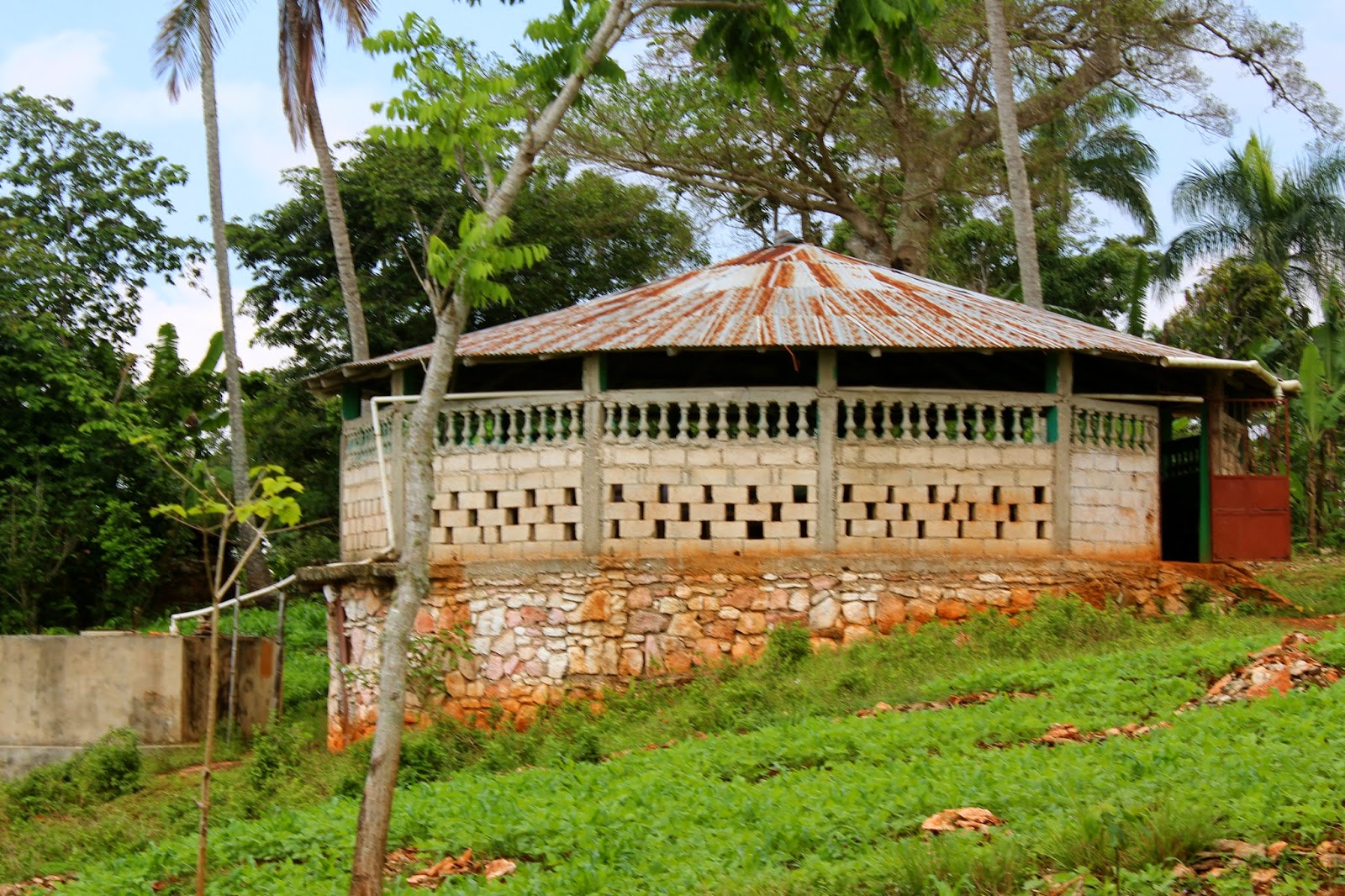Fonkoze board delegation in Jakmel, Haiti
 |
| Jakmel, Haiti |
 |
| Downtown Jakmel - many buildings were built in the 1890's |
 |
| Fonkoze board delegation in downtown Jakmel |
 |
| Carnaval character, Jakmel |
 |
| Jakmel artist - Charlotte |
 |
| Fonkoze delegation on the Jakmel boardwalk at dusk |
 |
| A lovely tile mosaic wall featuring iconic Haitian and Caribbean cultural and mythological figures along a road leading to Jakmel Bay. |
 |
| Boucard Art Gallery, Downtown Jakmel |
 |
| Boucard Art Gallery at dusk - a young boy in the doorway |
 |
| Linda and I celebrating Fonkoze's 20th anniversary in Haiti |















































